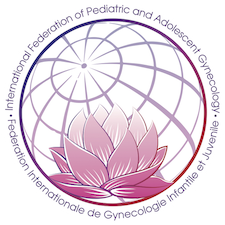FIGIJ Advocacy Statement: The Need for Safe Abortion Access for Adolescents
FIGIJ advocates for global unrestricted access to abortion for adolescents.
Introduction and purpose: demographics of Global Abortion Access for Adolescents
WHO estimated in 2019 that adolescents aged 15–19 years in low- and middle-income countries (LMICs) had an estimated 21 million pregnancies each year, of which approximately 50% were unintended. In many countries unsafe abortion is the leading cause of death in women (maternal mortality and also contributing to morbidity). In global crises, such as war or pandemics (i.e. COVID-19 or Ebola virus), girls are particularly vulnerable to sexual abuse, often resulting in unintended pregnancies and/or early marriage. Even in high income countries, access to abortion is not distributed equitably, with low-income communities having less access to abortion services.
Access to safe and legal abortion is an important, essential component of healthcare, especially for adolescents who have a higher percentage of unintended pregnancies and higher maternal morbidity and mortality, a worldwide public health problem.
In some countries abortion is completely restricted for all women. Restrictive regulations on abortions specifically targeting adolescents, even in countries where abortion is legal, include waiting periods, requirement for parental notification and/or consent, and restriction on travel across borders for accessing abortion services. FIGIJ supports the WHO 2022 Abortion Care Guidelines recommendation for decriminalization of abortion services.
Restricting abortion for adolescents leads to:
- Increased risk of distress and shame in adolescents who seek abortion services.
- Lack of robust systems for objective data collection and analysis about numbers of girls seeking abortions leading to knowledge gaps in sexual and reproductive medicine.
- Rise in maternal morbidity and mortality in vulnerable adolescents.
- Loss of trust in healthcare systems.
- Seeking of abortion services through unsafe channels
- Missed opportunities to access patients to prevent subsequent unintended pregnancy.
Restricting abortion leads to negative effects for healthcare providers, including:
- Reconsideration or refusal of evidence-based safe abortion services according to international guidelines.
- Fear of legal consequences of providing abortion health services.
Safe versus unsafe abortions: A matter of access
Both medical and surgical abortions are a crucial part of healthcare and performed in the clinical setting are safer than pregnancy, with the risk of death in childbirth greater than 10-fold more than with abortion. The risk of complications from legal abortion performed by a provider is extremely low, and contrary to myths does not affect future fertility or increase risk of cancer.
Historically, globally 45% of abortions occurred outside the healthcare setting and the majority in low and middle income countries (LMIC). Many women and girls with unintended pregnancies face barriers to attaining safe, timely, affordable, geographically reachable, respectful and non-discriminatory abortion care, so as a consequence they often resort to home remedies and unskilled providers to obtain an abortion resulting in unsafe abortion practices. Data show that restriction access to abortion does not prevent people from seeking abortion, it simply makes it more deadly. In order to access safe abortion young women need to face and manage stigma, lack of confidentiality and overcome significant systemic, social and cultural barriers. The need for parental consent, providers’ bias and the mere recognition of young people as sexual beings prevent youth from accessing sexual and reproductive health services they need and deserve.
Echoing the WHO, FIGIJ supports broad access for medical abortion for all adolescents as it is safe, private, cost-effective and limits the need for transportation for clinic visits.
FIGIJ advocates for the full spectrum of comprehensive reproductive care for adolescents including contraception, emergency contraception, sexual education and abortion services.
This includes:
- Providing women and girls with comprehensive sexuality education, accurate family planning and contraception information and services, and access to quality abortion care.
- Providing appropriate method mix for abortion (self-managed abortion, medical and surgical abortion) to all patients based on values and preferences of women and girls and the available resources.
- Training health professionals to provide safe and quality abortion care services with an appropriate understanding and interpretation of the laws and policies that regulate this practice.
- Staffing of health professionals offering abortion care within reach of patients.
- Supporting and protecting health professionals and patients against stigmatization.
- Recognition that pregnancy can occur due to violence and/or coercion and would necessitate appropriate safeguarding measures.
Postabortion care should include full contraceptive access, reproductive health counseling as well as nonjudgmental mental health support. Please see FIGIJ advocacy states “LARC’s access to prevent teenage pregnancy“ and “Mental health in children and adolescents from a PAG perspective “.
Conclusion
Human rights – including sexual and reproductive – should be respected, protected, and promoted by professional societies. Progressive legislation decriminalizing abortion upholds adolescent’s sexual and reproductive health.
Call for action
- FIGIJ supports access for adolescents to comprehensive sexuality and reproductive health education and the full range of contraceptive options, including emergency contraception to reduce unplanned pregnancy.
- FIGIJ supports legal and safe access to the full range of abortion services as a part of comprehensive medical care.
- FIGIJ supports a full decriminalization of abortion as recommended by the WHO.
- FIGIJ supports removing abortion restrictions specifically aimed at adolescents including third party authorization and/or parental notification and parental consent laws.
@ 2023
Mariela Orti, Argentina
Evelien Roos, the Netherlands
Anastasia Vatopoulou , Greece
Michalina Drejza, Poland/United Kingdom Clara Di Nunzio, Argentina
Judith Simms-Cendan, USA
